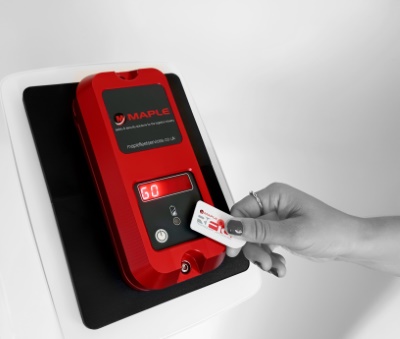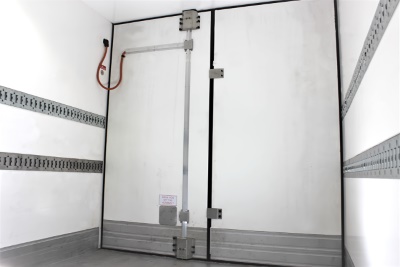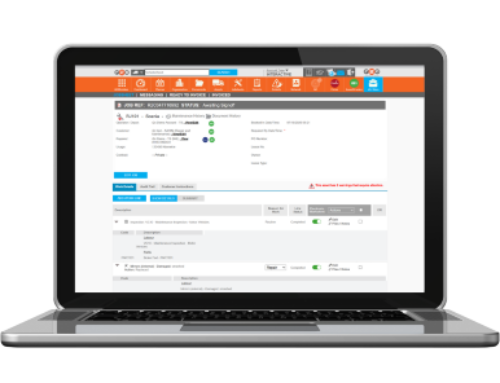Maple warning over ’jump-up’ thefts, as criminal gangs widen the net
 CV security systems provider Maple has highlighted the trend in recent years for organised crime gangs (OCGs) to lay siege to logistics operations via so-called ‘jump-up’ thefts.
CV security systems provider Maple has highlighted the trend in recent years for organised crime gangs (OCGs) to lay siege to logistics operations via so-called ‘jump-up’ thefts.
Incidents involve perpetrators tracking HGVs en route to retail outlets, whereby they look to exploit an opportunity to gain entry. Typically, says Maple, offenders will target a vehicle when stationary at traffic signals, held up by congestion (either by legitimate means or by way of diversionary tactics), or when the driver arrives at the destination and enters the store to notify staff of their arrival.
“Such has been the severity of these attacks, NaVCIS (National Vehicle Crime Intelligence Service) released a special report in January 2024, highlighting how reported incidents of JUT had increased 815 per cent from 2018 to 2021 (when incidents spiked),” said Maple.
“Much of the activity undertaken by the persistent offenders has been focused around tobacco movements but as carriers have adapted their operations and increased vehicle security, reports are now emerging that offenders are shifting their focus to ‘easier’ targets – alerting operators to take action now before falling victim to cargo criminals.”
As is common in cargo crime, the OCGs responsible understand supply chains, says the company; they have a working knowledge of the industry and are quick to identify and more pertinently, exploit, any vulnerabilities.
“Over the past 5/6 years, incidents of jump-up-theft have been relentless,” the firm said.
“Carriers have responded by implementing a variety of different measures to counter the threat they now find themselves facing, though the measures imposed must be balanced with the requirement to maintain operational efficiency, which for large FMCG operations is a significant conundrum.”
For Maple, working in collaboration with a number of operators in this space, it quickly became apparent that access control protocols must form the focal point for implementing a workable and ultimately successful long-term solution to combat the risks operators were facing.
 “With time critical loading operations, often involving trailer fleets, access keys or fobs generally need to provide access to multiple vehicles/trailers.
“With time critical loading operations, often involving trailer fleets, access keys or fobs generally need to provide access to multiple vehicles/trailers.
“Whilst fleet wide access keys provide greater flexibility, it can undermine overall security, particularly with large numbers of keys in circulation. Indeed, this vulnerability was soon exposed, as evidence emerged of incidents where keys had been acquired by offenders and subsequently used in cases of theft.”
To combat this challenge, Maple developed Key Validation, a bespoke access control solution that could be paired with its range of high security locking applications. Key Validation was designed to ensure goods in transit security was maintained without impacting on operational efficiency. Most notably the solution ensured that a large number of users would have fleet wide access without jeopardising security.
The system works on the principle that a large number of user fobs can be issued to individual personnel but can only be activated for controlled periods of time (i.e. for the duration of a shift). In operation the user simply presents their fob to a validation unit; in doing so the fob is activated for a set period of time (i.e. 8 hours).
Once elapsed the fob is disabled until the process is initiated once more. With the validation unit itself housed within the confines of a secure compound, this ensures user fobs can only be activated within a controlled environment, says Maple, thus building upon the layers of security already in-place at the client facility.
In the event that the control of keys or fobs is compromised, the Maple platform ensures that any risk can be swiftly eliminated, with unaccounted-for fobs being quickly neutralised.
“The Maple system also captures a comprehensive audit trail of all access events, providing complete transparency of operation, whilst assigning accountability to every action,” the firm continued.
“In the event of suspicious activity or if an operator identifies an incident that they need to investigate, all activity data can be downloaded via a smartphone app and viewed using the Maple web portal. Reports detail each door open event, allowing the user to identify when this occurred and who was responsible for the action.
“Used in conjunction with the Key Validation protocols, this powerful tool can help operators to gain greater control over goods in transit movements and mitigate the risk they may otherwise be exposed to.”
 There is no escaping the fact that retailers have faced considerable security challenges over the past few years, but this is far from a new phenomenon, Maple says: as cargo criminals continue to evolve their tactics to take advantage of perceived opportunity, it has reinforced the importance for the transport industry of continuing to adapt and work collaboratively to meet emerging security challenges.
There is no escaping the fact that retailers have faced considerable security challenges over the past few years, but this is far from a new phenomenon, Maple says: as cargo criminals continue to evolve their tactics to take advantage of perceived opportunity, it has reinforced the importance for the transport industry of continuing to adapt and work collaboratively to meet emerging security challenges.
“This year, our company celebrates 50 years in business,” said Paul Nunn, marketing manager for Maple.
“Throughout that time, cargo criminals have always shown they are adept at developing their techniques and exploiting opportunity. But it is also true that the transport industry is not averse to change. Many of our own security innovations have emerged as a result of collaboration with industry stakeholders to tackle a specific security issue; Key Validation is another example of that.
“Whilst the products that Maple offer are well placed to counter physical attack, this only forms part of the solution. The remit was to offer a system that ensures the right people have access at the right time, without inadvertently exposing another potential vulnerability.
“Crucially, the system is simple to manage and, once active, requires minimal maintenance on a day-to-day basis – a fact that has been welcomed by our clients who are already realising the benefits of implementing the system across their network.”












